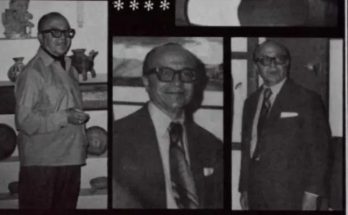By Luis Felipe Rodriguez
Sad events were recorded in San Miguel el Grande following the start of the War of Independence on September 15, 1810. Here is a chronicle from October 23, 1810.
“San Miguel still had not recovered from the extraordinary events that occurred in the month of September 1810, with its best Criollo sons having gone to war. The Spaniards had been taken prisoner, and a good number of neighbors followed the caudillos [insurgent leaders]. Poverty and anxiety spread through the town on October 23, 1810.
The civil authorities, headed by mayor Aldama, had fled the city to catch up with the insurgents. Colonel Narciso María Loreto de la Canal himself escaped, fleeing before the royalists. The town also learned about the fate of the campesinos of Puerto Nieto who were burned alive in their shacks. Juan Antonio de Riaño, the head of the royalist column, and Manuel Flor, were intent on avenging the death of their Spanish relatives.
The parish priest of San Miguel el Grande was Francisco Uraga Pardo y Verástegui, who had come from Celaya. He had become famous for his courage ever since his years as a teacher in the Valladolid seminary. While there, he was not afraid to criticize many in power, including Bishop Fray Juan Antonio de San Miguel and the Church. On that fateful day in October of 1810, he gathered the few priests who remained in the town, and they formed a solemn procession to receive the enraged Spanish chieftains. He led them to the Parroquia, said a solemn Te Deum, thanking God for the arrival of the royalist army, and prayed for help for the royalists. By doing so, he softened the heart of Manuel Flon, who forgave the city and its residents, and withdrew the original order of slaughtering them.
The priest Uraga Pardo died in San Miguel, and his remains rest in the parish crypt. There is a poem on his tomb, pleading for visitors to heed his words:
“Whence are you going, Sanmiguelense in a hurry,
Turn your eyes to the somber place
Holding the ashes of your loved one.
Oh, do not look upon him with cold feelings,
Leave behind your tears upon him,
Like the moss that comes with dew.
Do cry for him, for as I am witness,
He is your priest, and your best friend.”
Taken from: Estampas Sanmiguelenses, 3, by Cornelio Lopez Espinosa




